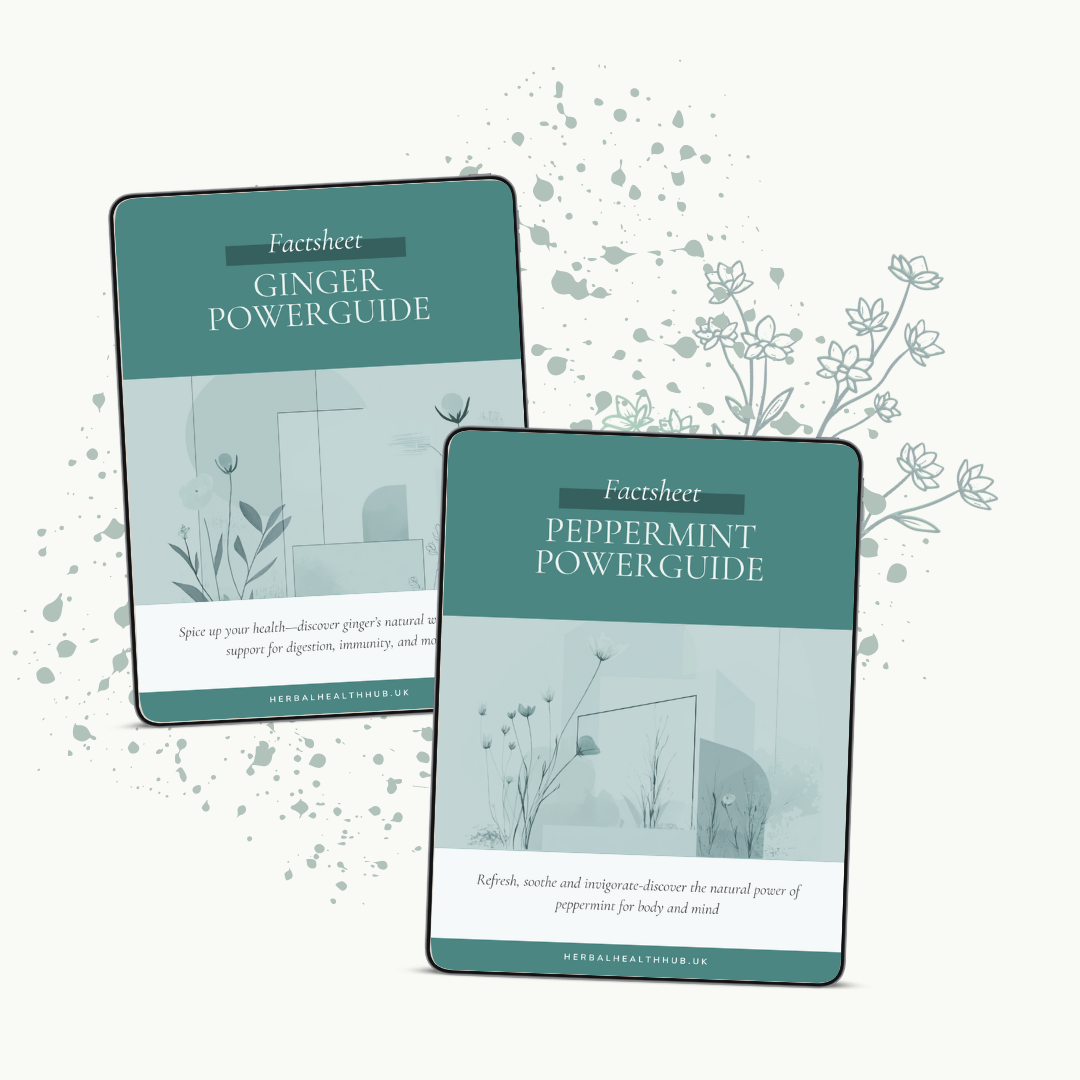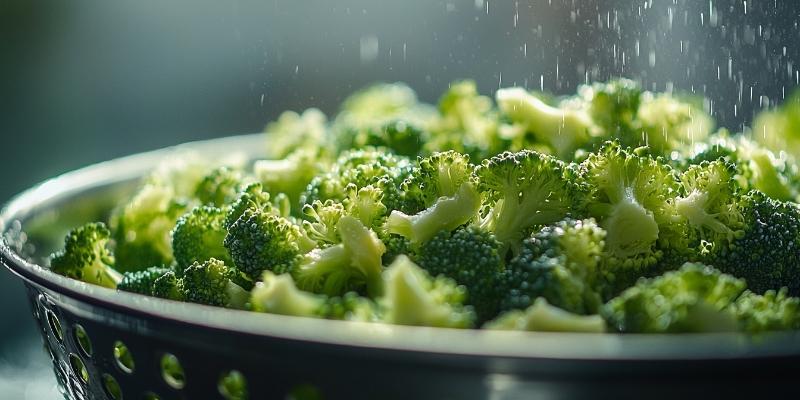Have you ever experienced digestive discomfort? Most of us have. Whether its bloating, cramps or tummy pain, did you know that the solution may already be in your kitchen? After all, people have used herbs for digestive health for centuries. What’s more, there are several modern clinical trials that support use of peppermint and ginger for these health conditions.
Yet, these herbs are quite different. Peppermint and ginger may both soothe abdominal discomfort, but each remedy does this in a different way. Get to know them a bit better and you will understand how to use them.
Peppermint has calming and relaxing effects on the digestive system, easing spasms and reducing bloating. While ginger relieves nausea and stimulates digestion, making the process more efficient and food easier to break down.
This post explores exactly how these herbs support your digestion and why including one or both might just be the key to a calmer, healthier gut. I believe that keeping a simple herbal remedy on hand makes so much sense. Herbal remedies are a natural, convenient option, and alternative medicine is often gentler on the body, with fewer adverse effects.
What is Peppermint’s Role in Digestion?
Why Peppermint?
On the other hand, some people can find that peppermint is not the right herb for them. Peppermint relaxes a muscle called the oesophageal sphincter. This is like a valve at the point where the oesophagus and the stomach meet. When this sphincter relaxes the acidic content of the stomach can rise up into the oesophagus and cause symptoms such as heartburn. However, peppermint oil capsules may solve this problem. More on this shortly.

How to Use Peppermint for Better Digestion
Peppermint tea is not just just a refreshing drink. This tea can help to reduce after dinner abdominal discomfort and distension by relaxing tense intestinal muscles.
Peppermint oil capsules can be especially helpful to manage IBS. The capsule carries the oil further down the digestive tract to where it is needed.

What is Ginger’s Role in Digestion?
Why Ginger?
Ginger is well known as a remedy for nausea and vomiting, including morning sickness, it reduces intestinal inflammation and improves gut motility. Ginger can also reduce intestinal spasms because it increases blood flow and relaxes muscles. Traditionally its warming, digestive properties are used to aid a weak stomach or improve a poor appetite.

How to Use Ginger for Better Digestion
Ginger tea is a classic remedy for a range of ailments that include digestive discomfort and nausea. I like ginger tea just as it is but sometimes I add honey and lemon or lime to enhance the flavour.
Ginger supplements are available, but ginger in any form has medicinal properties, whether it is in a commercial herbal product or in meals, tea, chews, or juice. My preference is, as usual, a food first approach.
Comparing the Qualities of Peppermint and Ginger for Digestive Health
Knowing the unique qualities of a herbal remedy can help you decide how best to use it, based on your needs. Both of these medicinal herbs are well known for their digestive benefits, though they support intestinal health in different ways.
To sum up, peppermint is calming and relaxing and is highly effective for reducing gut spasms. As a natural antispasmodic it can help to reduce bloating and soothe cramps.
Ginger is stimulating and anti-inflammatory. It stimulates and improves the digestive process, easing nausea, indigestion and bloating.
These remedies are two of the best herbs for digestive health. Use them as part of a holistic approach in cooking, in herbal teas or in supplement form.
I’d love to hear from you if you decide to give these herbs a try.









0 Comments